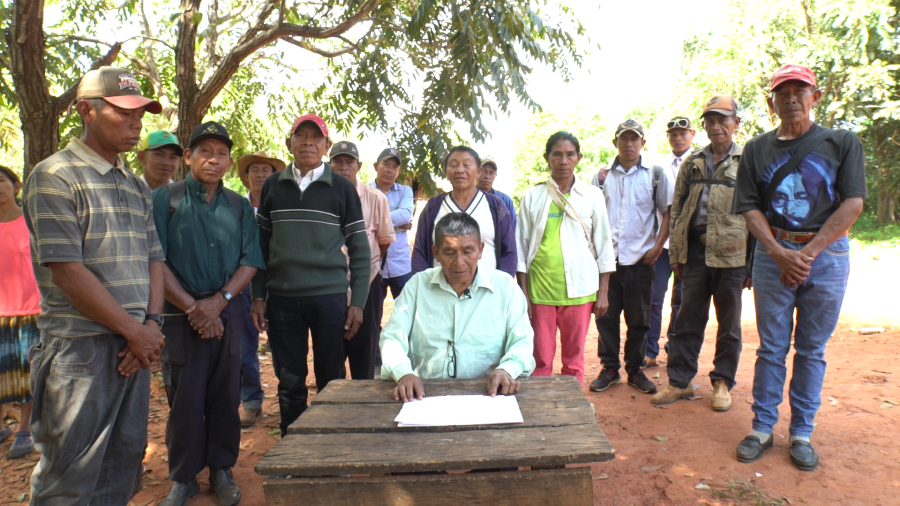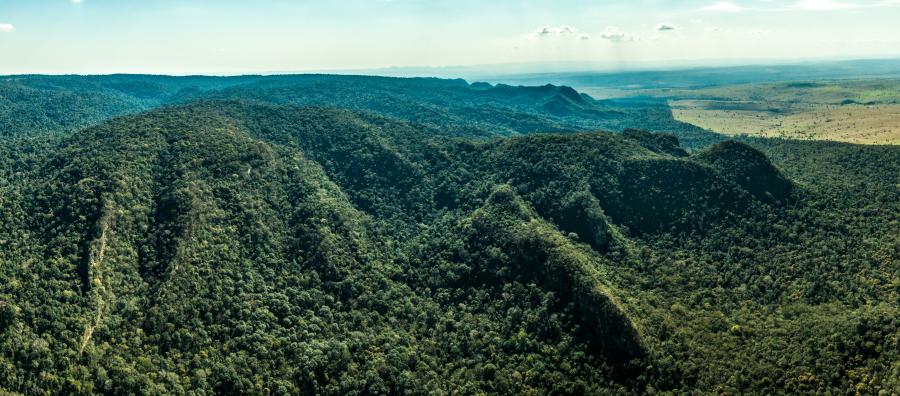Survival International issued a press release on July 1, 2014 entitled South American tribe sues over historic genocide which states:
"The British, US and West German governments denied that genocide was taking place, and the US authorities sponsored the Harvard-based organization Cultural Survival (CS) to “review the status of indigenous peoples in Paraguay.” Their report to the government was confidential, but a copy was obtained under the Freedom of Information Act. CS then published an amended version. Relying partly on the testimony of Peace Corps volunteer, Kim Hill, it denied that genocide had taken place, and criticized many of those, such as Munzel and Arens, who had brought the Ache̕ s plight to global attention."
Survival International’s recent statement references a report published by Cultural Survival in 1980 and fails to fully and accurately represent the findings in the report. We would like to set the record straight.
In 1979, Maybury-Lewis and James Howe submitted a report The Indian Peoples of Paraguay: Their Plight and their Prospects to USAID based on an investigation of the condition of the Aché and Guaraní people and the reports of genocide in eastern Paraguay. In 1980, Cultural Survival published the report. According to Maybury-Lewis and Howe, “The greatest proven faults of the Paraguayan government relative to the Aché were sins of omission rather that commission – its failure to protect the Aché from their persecutors, on and off the reservation, its failure to prosecute Pereira and known Ache̕-hunters, and its failure to liberate those Aché being held in servitude…. It can be argued that failure to protect a people against repeated murderous attacks, whether or not they are genocidal in intent, constitutes complicity in de facto genocide (see Smith and Meli̕a’s discussion, 1978). Under any name, tolerance of such attacks is inexcusable. The charge that the Paraguayan government has had an official policy of genocide against the Indians seems to us unlikely as well as unproven.”
In an article written in 2012, The Aché and Guaraní: Thirty Years after Maybury-Lewis and Howe’s Report on Genocide in Paraguay, authors Richard Reed and John Renshaw state, “Their report, published by Cultural Survival as The Indian Peoples of Paraguay: Their Plight and their Prospects (1980), provided what is perhaps the most objective and cogent assessment of the situation of Paraguay’s native peoples at the time….. Maybury-Lewis and Howe recognized that the indigenous peoples of Paraguay faced desperate conditions, but did not find evidence for a state policy of genocide. Rather they argued the native population was being reduced by wider social and economic forces that were affecting the rural areas of Paraguay. The report details the problems of land and labor resources, of maintaining subsistence and adequate health, and the climate of political prejudice and inadequate legal protection. Indigenous peoples were suffering, but the cause was not unlike that which was disrupting indigenous societies throughout lowland Latin America: “the power of settlers, extractive capitalism, and the expanding national society.”
Cultural Survival recognizes that human rights violations did occur and have continued. A 2008 report of the Paraguayan Truth and Justice Commission found that Paraguay “has still not seen the laws it created made operational, for which reason reparation for and prevention of the vast majority of human rights violations against Indigenous Peoples in the past is lacking. These violations continue to occur, affecting their lives, plans, culture, cosmovision and territory of Indigenous Peoples.” In 2007 Paraguay adopted the UN Declaration on the Rights of Indigenous Peoples. However, a recent 2011 UN Universal Periodic Review submitted by Amnesty International reveals that “Paraguay’s institutional framework has failed and continues to fail the country’s Indigenous Peoples in their struggle for recognition of their rights.”
Cultural Survival is an Indigenous led organization advocating for the rights of Indigenous Peoples worldwide and works towards the implementation of the United Nations Declaration on the Rights of Indigenous Peoples. Our organizational work is recognized by Indigenous people in many communities worldwide and our partnerships with Indigenous people and their communities is based on respect and regard for self-determination, the right to free, prior, and informed consent, and programs that advance their human rights and Indigenous rights. As such, Cultural Survival supports the Aché in their struggle for justice, rights, self-determination, and actions for redress.
Suzanne Benally
(Navajo and Santa Clara Tewa)
Executive Director
Sources:
Amnesty International submission to the UN Universal Periodic Review, Tenth Session of the UPR Working Group of the Human Rights Council. January, 2011.AMR 45/003/2010 http://www.amnesty.org/en/region/paraguay
Maybury-Lewis, David and James Howe (1980). The Indian Peoples of Paraguay: Their Plight and their Prospects. Cambridge, MA: Cultural Survival.
Reed, Richard and John Renshaw (2012). The Aché and Guaraní: Thirty Years after Maybury-Lewis and Howe’s Report on Genocide in Paraguay. Tipiti̕: Journal of the Society for the Anthropology of Lowland South America, 10 (1), 1-18.
http://digitalcommons.trinity.edu/tipiti/vol10/iss1/1


